The Nagorno-Karabakh crisis has Armenians worried that the country will become a new arena between regional powers such as Türkiye and Iran.
After witnessing the separatist movement in Nagorno-Karabakh being crushed by the Azerbaijani army in a lightning "anti-terror" operation, more and more Armenians are beginning to fear the prospect of conflict spilling over the border, as tensions with neighboring Azerbaijan increase.
Armenian Prime Minister Nikol Pashinyan's biggest goal this week is to reach a peace deal with Azerbaijan at the European Political Community (ECPS) summit in the Spanish city of Granada, hoping to prevent the conflict from escalating.
"Armenia has always said and continues to say that we are ready to sign a peace treaty," Sargis Khandanyan, head of the parliament's standing committee on foreign affairs, told media on October 3. He accused Azerbaijan of "trying to sabotage the chances of signing a treaty through aggressive policies and military actions."
Armenia may be at a disadvantage at the negotiating table when facing an Azerbaijan that is full of enthusiasm after its military victory in Nagorno-Karabakh. In addition, the geopolitical balance is tilting towards Baku with the support of the great powers, while Yerevan is gradually isolated and unable to find allies with enough influence in the region.
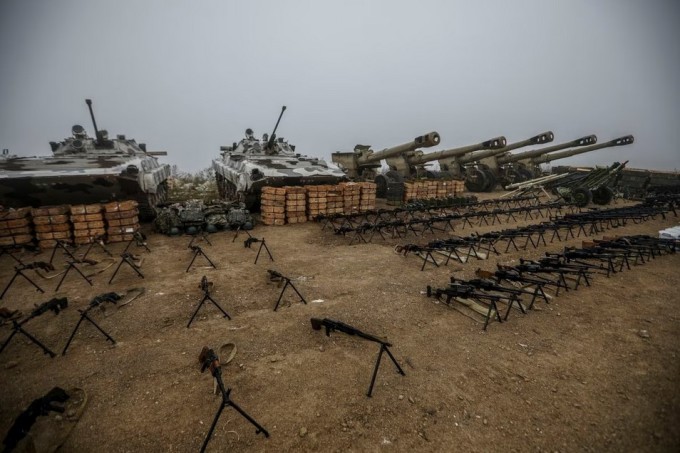
Weapons of pro-Armenian militias in Nagorno-Karabakh were confiscated by the Azerbaijani army on September 30. Photo: Lapresse
Russia has been a decisive voice in regional affairs for decades, through its role in providing military support to Armenia, mediating Armenia-Azerbaijan peace talks and maintaining peace in Nagorno-Karabakh. However, the war with Ukraine has forced Russia to reduce its interest in the South Caucasus, causing Moscow’s position in the region to decline.
Realizing this, Armenia has gradually approached the European Union (EU) and the United States in recent years to seek security guarantees. Yerevan has pushed forward the process of joining the International Criminal Court (ICC), which has issued an arrest warrant for Russian President Vladimir Putin, as well as participating in joint military exercises with the United States.
The ECPS peace talks in Spain are an initiative led by the European Union (EU) to help Armenia break the deadlock with Azerbaijan and are part of Yerevan's "westward" trend.
Meanwhile, Azerbaijan has maintained a traditional alliance with Türkiye since the 1990s. When the Azerbaijan-Armenia conflict broke out in 2020, Ankara strongly supported Baku with drone technology and ammunition, helping the Azerbaijani army gain an advantage after 44 days of fighting and regain control of seven administrative districts in the Nagorno-Karabakh region.
The strong alliance with Ankara is considered an important foundation for Baku to launch a military operation in Nagorno-Karabakh on September 20. The operation lasted less than 24 hours, forcing pro-Armenian militias to surrender and disarm.
After the fall of Nagorno-Karabakh, France was the only European country to commit to selling weapons to Armenia for "self-defense". The rest of the EU only "expressed concern" and pledged aid to respond to the humanitarian crisis. The European Commission (EC) still considers Azerbaijan a "reliable partner" in energy supplies, in the context of their need for a gas supplier to replace Russia.
Prime Minister Pashinyan's pro-Western foreign policy has angered Russia, the only country committed to guaranteeing Armenia's security within the Collective Security Treaty Organization (CSTO). Russia has openly criticized Armenia's "pro-Western" stance and warned it of the consequences of joining the ICC.
"After the outbreak of war in Ukraine, coupled with the fact that the West and Russia have entered a state of 'Cold War', maintaining balanced relations with both blocs has become an impossible task for a small country like Armenia. Now, neither Russia nor the West is ready to protect us militarily," said Benjamin Poghosian, an analyst at the Applied Policy Research Institute (APRI) in Yerevan.
He believes the current situation could force Armenia to seek support from Iran, which could turn the country into a playing field for regional powers.
According to Poghosian, Tehran will seek to increase its influence in Armenia because it does not want Baku to establish too large a position in Central Asia, as well as to strengthen relations with Israel, Iran's rival in the region.
Heshmatollah Falahatpisheh, former head of the Iranian parliament's National Security and Foreign Policy Committee, warned on October 2 that the developments in Nagorno-Karabakh were "the beginning of a regional crisis." He admitted that the Iranian government and military leadership have yet to react strongly to Azerbaijan, even though Nagorno-Karabakh is considered a "red line" in relations between Baku and Tehran.
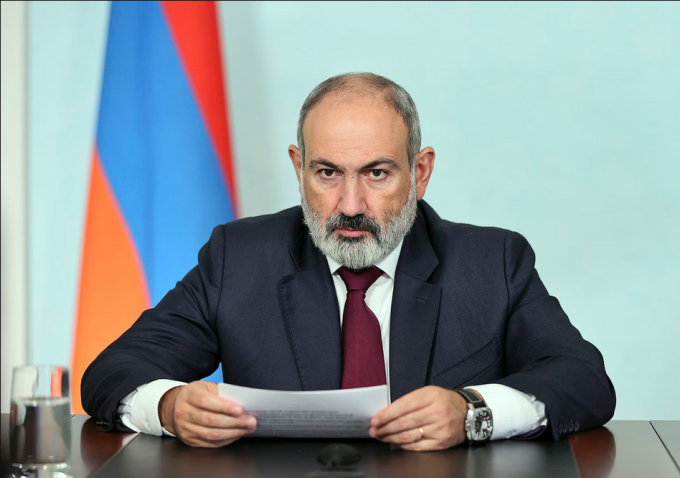
Armenian Prime Minister Nikol Pashinyan speaks on national television on September 24. Photo: Office of the Government of Armenia
After losing influence in Nagorno-Karabakh, Armenia may have to make further concessions at the negotiating table with Azerbaijan in Spain. Baku is now demanding that Yerevan establish a secure transport corridor connecting Azerbaijan to Naxcivan, the part of Azerbaijan separated by southern Armenia and bordering Türkiye and Iran.
In addition, Azerbaijan wants Armenia to "end its occupation" of some areas located on strategic routes in southern Armenia, which are a legacy of the conflict between the two countries since the 1990s, and to create conditions for Azerbaijanis who used to live in Armenia to safely return home.
According to Poghosian, the Pashinyan administration understands that a peace treaty with Azerbaijan is now almost the only way to preserve Armenia’s existence. This agreement will pave the way for Armenia to normalize relations with Türkiye, open its eastern and western borders, reduce its overall dependence on Russia and end its isolation.
"But for this scenario to become a reality, Armenia must accept concessions from Azerbaijan. Baku is not yet satisfied with its victory in Nagorno-Karabakh and is making more demands," Poghosian said.
APRI experts said the current situation makes Armenians increasingly worried that Azerbaijan will launch a direct attack on the country if they do not achieve what they want at the negotiating table in Granada on October 5.
"We understand that concessions are inevitable. But Azerbaijan always makes new demands. Will they one day demand Yerevan as well? We are all worried that a new war will break out at any moment," said Anna Pambukhsyan, director of the Foundation for the Development of Democracy in Armenia.
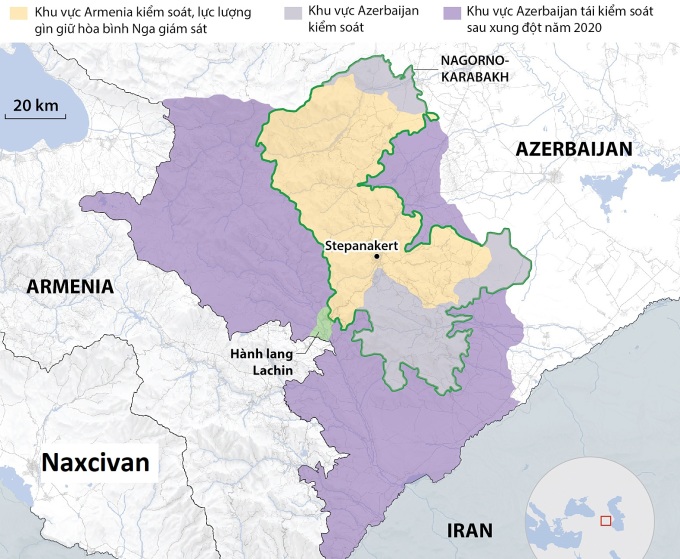
Location of Nagorno-Karabakh and Naxcivan regions, two hot spots of conflict in Armenia-Azerbaijan relations. Graphics: AFP
Thanh Danh (According to El Pais, Bloomberg, Euronews, NEWS.am )
Source link




![[Photo] President Luong Cuong chaired the welcoming ceremony and held talks with United Nations Secretary-General Antonio Guterres](https://vphoto.vietnam.vn/thumb/1200x675/vietnam/resource/IMAGE/2025/10/24/1761304699186_ndo_br_1-jpg.webp)
![[Photo] Prime Minister Pham Minh Chinh chairs conference on breakthrough solutions for social housing development](https://vphoto.vietnam.vn/thumb/1200x675/vietnam/resource/IMAGE/2025/10/24/1761294193033_dsc-0146-7834-jpg.webp)
![[Photo] Solemn funeral of former Vice Chairman of the Council of Ministers Tran Phuong](https://vphoto.vietnam.vn/thumb/1200x675/vietnam/resource/IMAGE/2025/10/24/1761295093441_tang-le-tran-phuong-1998-4576-jpg.webp)
![[Photo] Prime Minister Pham Minh Chinh and South African President Matamela Cyril Ramaphosa attend the business forum](https://vphoto.vietnam.vn/thumb/1200x675/vietnam/resource/IMAGE/2025/10/24/1761302295638_dsc-0409-jpg.webp)
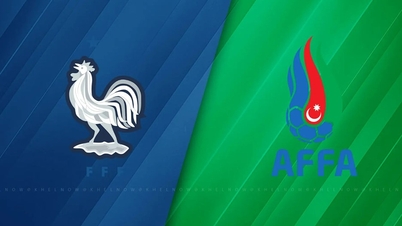

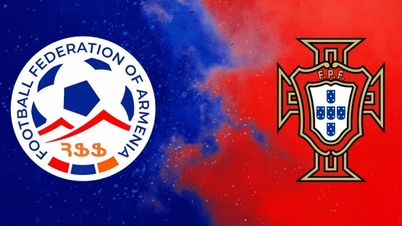






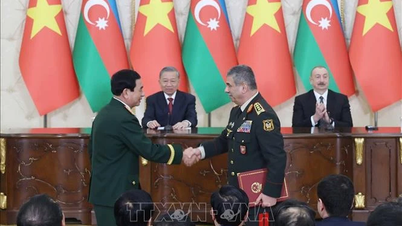

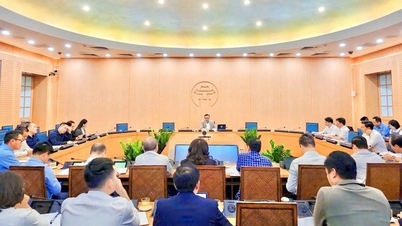

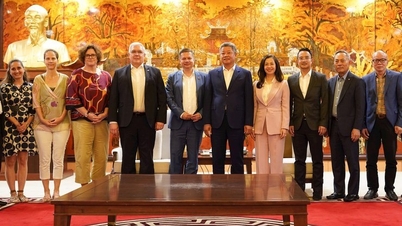
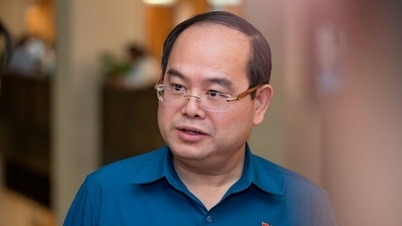

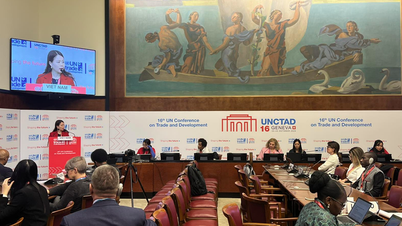


















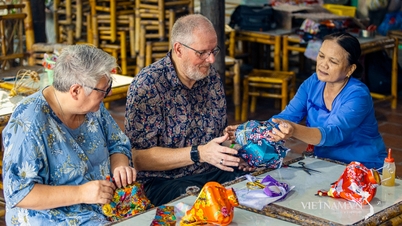

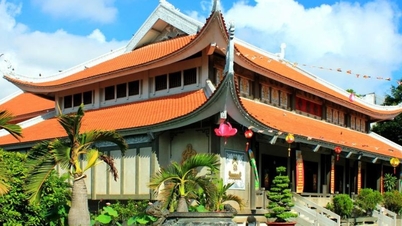

























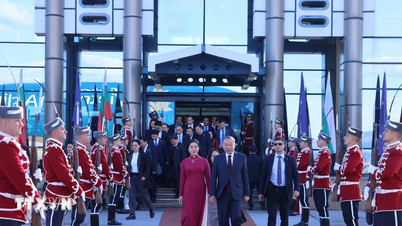
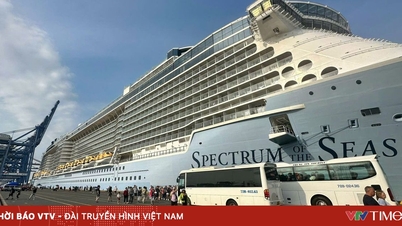
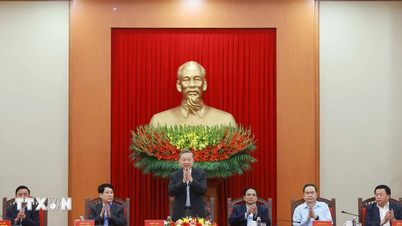
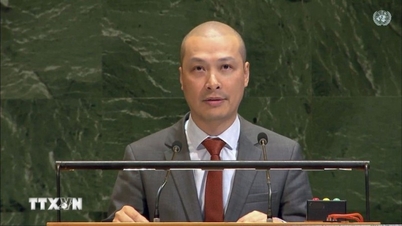
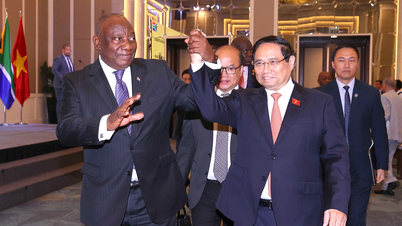

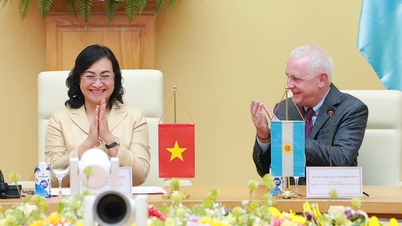





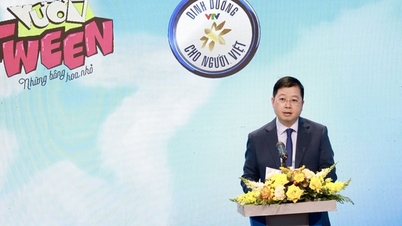
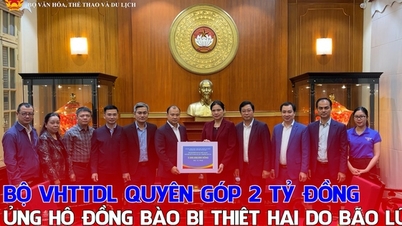




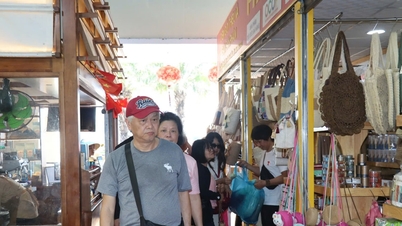

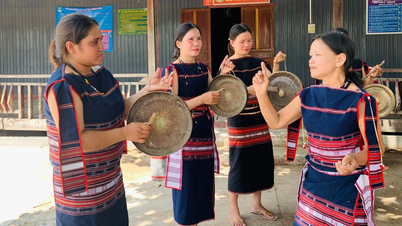

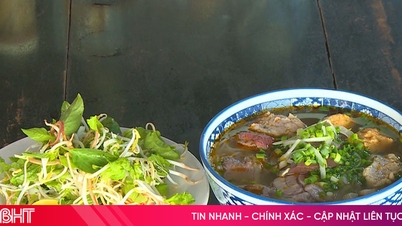

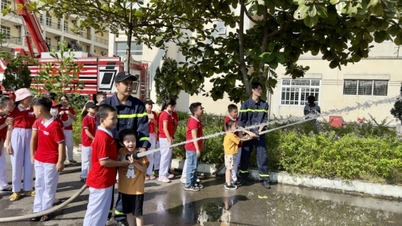

















Comment (0)